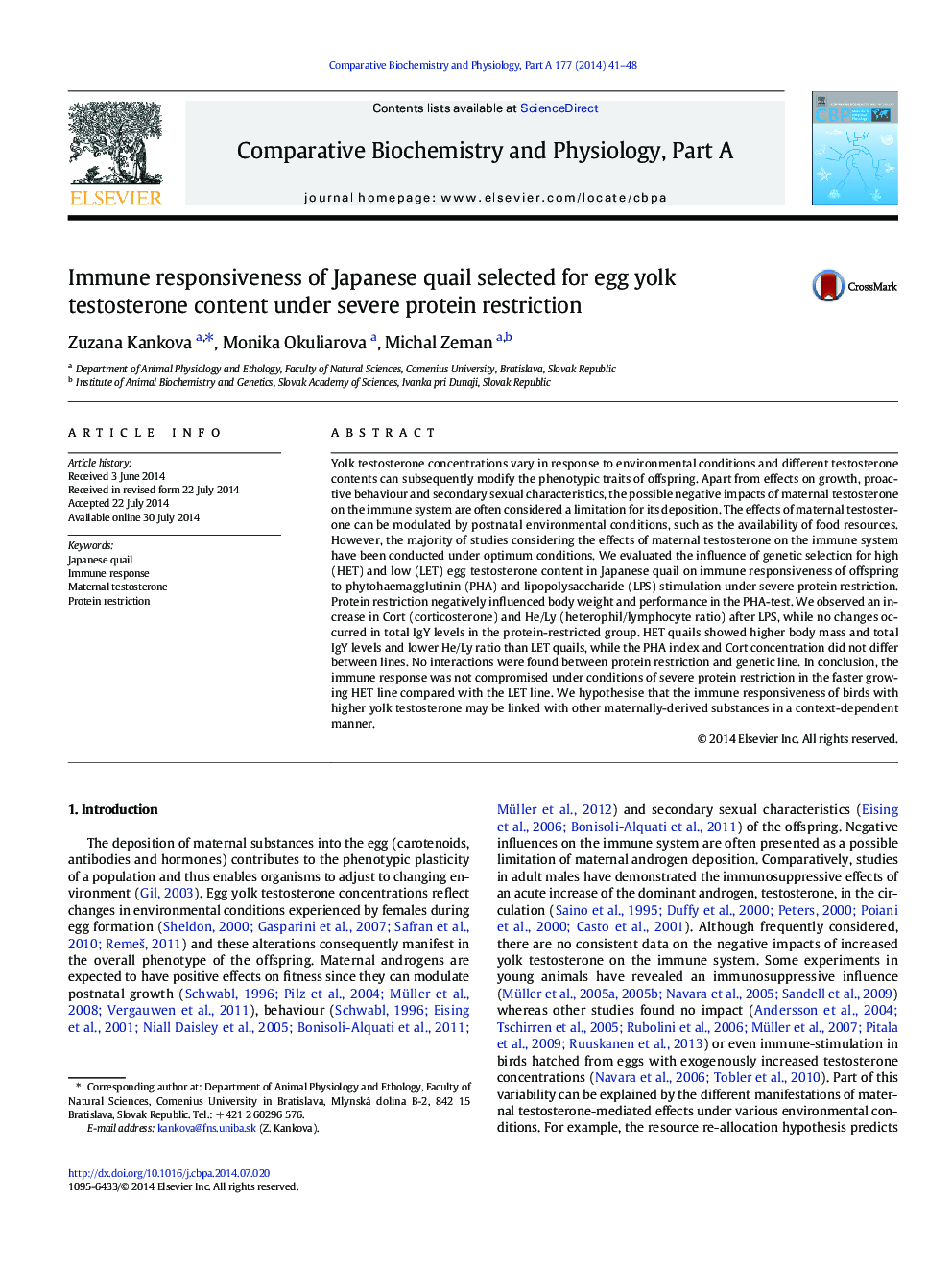| Article ID | Journal | Published Year | Pages | File Type |
|---|---|---|---|---|
| 1972154 | Comparative Biochemistry and Physiology Part A: Molecular & Integrative Physiology | 2014 | 8 Pages |
Yolk testosterone concentrations vary in response to environmental conditions and different testosterone contents can subsequently modify the phenotypic traits of offspring. Apart from effects on growth, proactive behaviour and secondary sexual characteristics, the possible negative impacts of maternal testosterone on the immune system are often considered a limitation for its deposition. The effects of maternal testosterone can be modulated by postnatal environmental conditions, such as the availability of food resources. However, the majority of studies considering the effects of maternal testosterone on the immune system have been conducted under optimum conditions. We evaluated the influence of genetic selection for high (HET) and low (LET) egg testosterone content in Japanese quail on immune responsiveness of offspring to phytohaemagglutinin (PHA) and lipopolysaccharide (LPS) stimulation under severe protein restriction. Protein restriction negatively influenced body weight and performance in the PHA-test. We observed an increase in Cort (corticosterone) and He/Ly (heterophil/lymphocyte ratio) after LPS, while no changes occurred in total IgY levels in the protein-restricted group. HET quails showed higher body mass and total IgY levels and lower He/Ly ratio than LET quails, while the PHA index and Cort concentration did not differ between lines. No interactions were found between protein restriction and genetic line. In conclusion, the immune response was not compromised under conditions of severe protein restriction in the faster growing HET line compared with the LET line. We hypothesise that the immune responsiveness of birds with higher yolk testosterone may be linked with other maternally-derived substances in a context-dependent manner.
